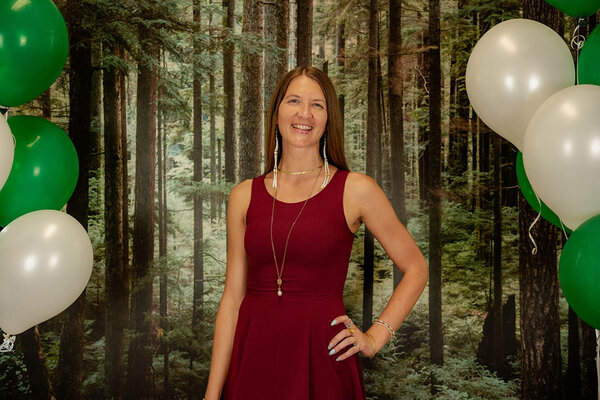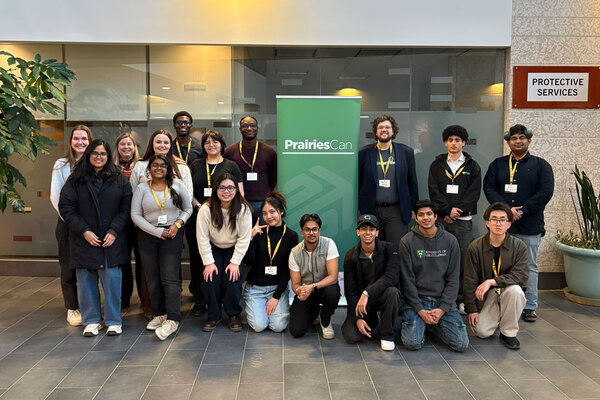
MFA in writing student awarded Innovation and Opportunity Scholarship
Cassi Smith will write a memoir highlighting a unique conflict resolution practice conducted by the Saskatchewan Elders Council
by Justine Gieni
Cassi Smith has witnessed the healing power of culture.
Smith, a student in the ICCC’s MFA in writing program, was recently awarded a Saskatchewan Innovation and Opportunity Scholarship of $16,000. The award is to support her project entitled “Opikinawasowin a Narrative of Empathy: Bridging the Gaps Between First Nations Families and the Ministry of Social Services.” The project will examine the traditional teachings and methods of the Saskatchewan Elders Council in the area of conflict resolution and healing.
Opikinawasowin, or Opik for short, is the Cree word for “the raising up of the children” and describes the child-centric process conducted by the Saskatchewan Elders Council to create shared understanding and resolution in conflicts between families and the Ministry of Social Services in cases of child protection. During week-long Opiks, Elders gather to meet with the parents, the children in care, and the Ministry of Social Services along with any other individuals the family or the Ministry would like involved in the process. The Elders listen to each side of the story, and then determine what is in the best interest of the children when making recommendations to the provincial court judge during the protection hearing.
Smith, who has worked as an Elders’ helper during the Opik process for the last ten years, sees the power of this traditional mediation practice.
“As a silent witness to the process for over ten years, I’ve gained the utmost respect for the Elders Council and the work they do,” says Smith. “You only need to sit down and speak with a member of the council for a few moments to witness the undeniable wisdom that the Elders possess. I have witnessed first-hand just how far the Elders Council’s reach truly is in terms of healing families through culture.”
Smith’s research for the project draws on the traditions of Aboriginal oral storytelling by using interviews with Saskatchewan’s First Nations Elders from the council. She hopes to compile her research into a non-fiction memoir that will highlight the important work that the Elders Council is doing to bridge the cultural gaps that have contributed to disproportionate numbers of First Nations children in foster care.
“I'm hoping my project will highlight the value in First Nations culture and the First Nations child-rearing process in particular. I hope I can shed some light on the fundamental gaps between the Ministry of Social Services and our First Nations families: why that gap exists and how we can work to close it. Ultimately, I hope my project can work toward a better understanding of First Nations people and the inherent value and power of their traditions.”
This article originally appeared on the website of the Interdisciplinary Centre for Culture and Creativity.


